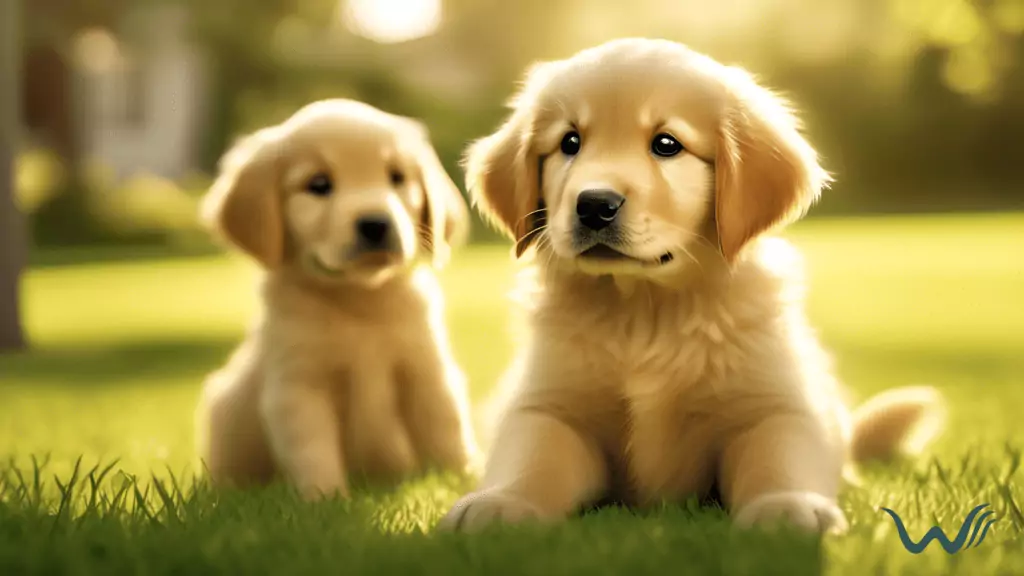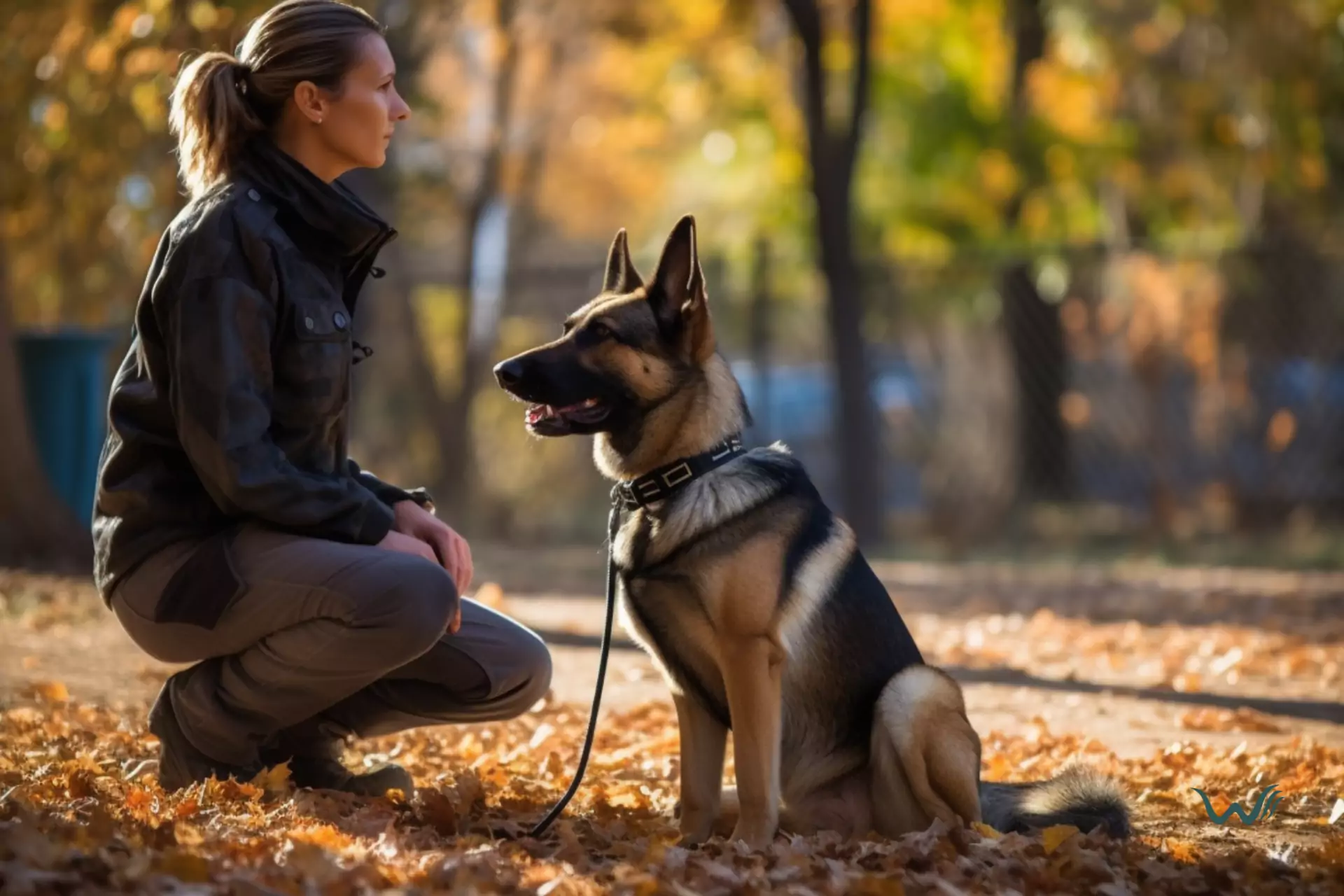

Step-by-Step Recall Training For Puppies
by Ayesha Aziz
Last updated: September 19, 2025
Verified and Approved by:
Angela Morris,
MSW, LCSW
Fact Checked

Are you the proud owner of a new puppy, eager to train them to be well-behaved and obedient?
One of the most important commands to teach your furry friend is recall, or the ability to come when called. This skill not only ensures their safety but also allows you to have a closer bond with your pup.
In this article, we will guide you through a step-by-step recall training process that will have your puppy responding to your call in no time! Recall training is all about establishing a positive association between the recall cue and something your puppy loves.
This could be a treat, a favorite toy, or even praise and affection. By consistently rewarding your pup every time they come to you, they will quickly learn that responding to the recall cue leads to something enjoyable.
This positive reinforcement will motivate them to come running whenever they hear you call their name. So, get ready to embark on this training journey with your furry companion, and watch as they eagerly respond to your every beck and call!
Understanding Recall Training Basics
Recall training is like a secret code that helps you communicate with your puppy and bring them back to you. It’s an essential skill that every puppy needs to learn, as it ensures their safety and allows you to have control over their actions. By teaching your puppy to come when called, you’ll be able to take them on off-leash adventures, allow them to explore the world around them, and build a stronger bond between the two of you.
To start recall training, you need to establish a positive association with the word “come.” Use treats, toys, or anything that your puppy finds rewarding to reinforce their response to the command.
Begin in a quiet and distraction-free environment, and say “come” in an enthusiastic and inviting tone. When your puppy comes to you, reward them with praise and a treat.
Repeat this process multiple times a day, gradually increasing the distance between you and your puppy. Don’t forget to always be patient and consistent, and never punish your puppy for not coming right away.
With time and practice, your puppy will understand the meaning of the word “come” and respond to it reliably.
By mastering recall training, you’ll be able to ensure the safety of your puppy and provide them with the freedom to explore their surroundings. It’s a valuable skill that will serve you and your puppy throughout their life.
So, start practicing today and watch as your puppy learns to respond to your call with excitement and eagerness.
Establishing a Positive Association with the Recall Cue
To ensure your furry friend eagerly responds to your call, it’s essential to create a delightful association with the recall cue. By establishing a positive connection between the cue and something enjoyable, you can motivate your puppy to come running whenever they hear it.
Here are four ways to create that positive association:
- Use treats: Offer your puppy a high-value treat every time you give the recall cue. This will make them associate the cue with something delicious and rewarding.
- Playtime: Incorporate playtime into your recall training sessions. Engage in a fun game with your puppy after they successfully respond to the cue. This will make them associate coming to you with a fun and playful experience.
- Praise and affection: Shower your puppy with praise and affection whenever they come to you after hearing the recall cue. Dogs thrive on positive reinforcement, and this will make them feel loved and appreciated.
- Use a happy tone: When giving the recall cue, use a happy and enthusiastic tone of voice. This will make the cue sound inviting and exciting to your puppy.
By implementing these strategies, you can establish a positive association with the recall cue, making it more likely that your puppy will eagerly respond whenever they hear it.
Gradual Progression and Reinforcement
As you continue on this journey, little by little, you might just find yourself amazed at how quickly your furry companion picks up on the art of coming when called. Recall training for puppies is all about gradual progression and reinforcement. Once your pup has established a positive association with the recall cue, it’s time to take it to the next level.
Start by practicing in a quiet, familiar environment with minimal distractions. Call your puppy’s name and use the recall cue, such as “come” or “here.” When they come to you, shower them with praise, treats, and affection. This reward-based training is effective in strengthening the association between the recall cue and a positive reinforcement.
Once your puppy is consistently responding to the recall cue in a controlled environment, gradually increase the level of distractions. Practice in different rooms of the house, in the backyard, and eventually in public places.
If your puppy gets distracted or doesn’t come right away, avoid scolding or punishing them. Instead, use positive reinforcement to encourage the desired behavior.
By gradually progressing and reinforcing the recall cue, you’ll be amazed at how quickly your furry companion becomes a pro at coming when called. Keep up the great work, and enjoy the journey of training your puppy to be a well-behaved and responsive companion.
Dealing with Challenges and Distractions
When facing challenges and distractions, it’s important to remain patient and consistent to effectively train your puppy. It can be frustrating when your puppy gets easily distracted or doesn’t respond to your commands, but don’t forget that they are still learning and it takes time for them to understand and follow instructions. Stay calm and positive, as your puppy can sense your emotions and it will affect their behavior. Consistency is key in training, so make sure to use the same commands and techniques every time.
To help you navigate through challenges and distractions, here is a table that outlines some common issues and strategies to overcome them:
| Challenge/Distraction | Strategy |
|---|---|
| Loud noises | Start training in a quiet environment and gradually introduce more noise. Use positive reinforcement and treats to create a positive association with the noise. |
| Other animals | Start training in a controlled environment with minimal distractions. Gradually expose your puppy to other animals and reward them for staying focused on you. |
| Lack of motivation | Use high-value treats or toys to increase motivation. Vary the rewards to keep your puppy engaged and excited during training sessions. |
Consistency and Continued Practice
Consistency and continued practice are crucial when teaching your puppy to come when called. Research has shown that puppies who receive regular recall training are more likely to develop reliable recall skills as they grow older. By consistently practicing recall exercises with your puppy, you’re setting them up for success in the future.
To help you stay motivated and focused on your recall training journey, here are a few emotional reminders:
- Every time your puppy comes to you when called, it strengthens the bond between you and reinforces their trust in you as their leader.
- A reliable recall can potentially save your puppy’s life in dangerous situations, giving you peace of mind knowing that you have control over their actions.
- By teaching your puppy to come when called, you’re not only serving their needs for safety and security but also fulfilling their innate desire to please and be a valued member of your family.
- Having a puppy that comes when called is a source of pride and satisfaction, showcasing your commitment to their well-being and your dedication as a responsible dog owner.
Set aside regular training sessions each day and practice recall exercises in various environments and situations. Gradually increase distractions as your puppy becomes more proficient in responding to your recall command.
With continued practice and patience, your puppy will develop reliable recall skills that will serve them well throughout their life.
Keep up the great work!
Frequently Asked Questions
How long does it typically take for a puppy to learn to recall training?
Typically, it takes puppies a few weeks to learn recall training. It’s important to be patient and consistent, using positive reinforcement. Remember, they’re still learning and relying on you. Keep practicing and they’ll get it!
Can I use treats other than food to reinforce recall training?
Yes, you can use treats other than food to reinforce recall training. Symbolically, these treats can represent love and connection, strengthening the bond between you and your puppy as they come running to you.
Is it necessary to use a specific recall cue or can I use any word or sound?
It’s important to use a specific recall cue to truly reinforce recall training for your puppy. While any word or sound may grab their attention, a unique cue will help them understand what you want them to do.
What can I do if my puppy does not respond to the recall cue?
If your puppy doesn’t respond to the recall cue, don’t worry! Try using a different word or sound that grabs their attention. Use treats or toys as rewards to motivate them. Consistency and patience are key in training. Keep at it!
Are there any specific breeds or types of puppies that may have more difficulty with recall training?
Some breeds or types of puppies may have more difficulty with recall training than others. For example, independent and strong-willed breeds like Huskies or Terriers may require extra patience and consistent training to master the recall cue.
Certify Your Emotional Support Animal Today

Why You Can Rely on Us?
At Wellness Wag, we believe your pet deserves care rooted in both science and compassion. Each article is carefully researched, written in clear language for pet owners, and then reviewed by qualified professionals to ensure the information is evidence-based, current, and practical for real-life care. Our goal is to help you feel confident in making informed decisions about your pet’s health and well-being.
Reviewed by
Angela Morris, MSW, LCSW
Angela is a licensed clinical social worker with 20 years of experience in patient advocacy and community mental health. She has assisted numerous clients with ESA evaluations and brings a deep understanding of disability accommodations, ensuring that all information is accurate, supportive, and practical.

Written by :
Ayesha Aziz
Last Updated :
September 19, 2025










